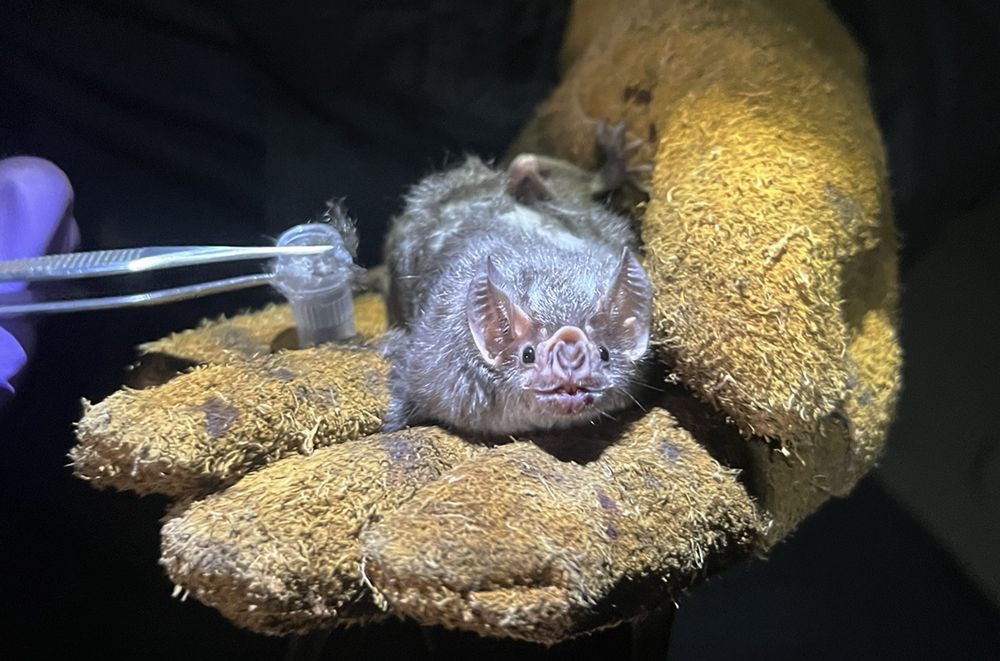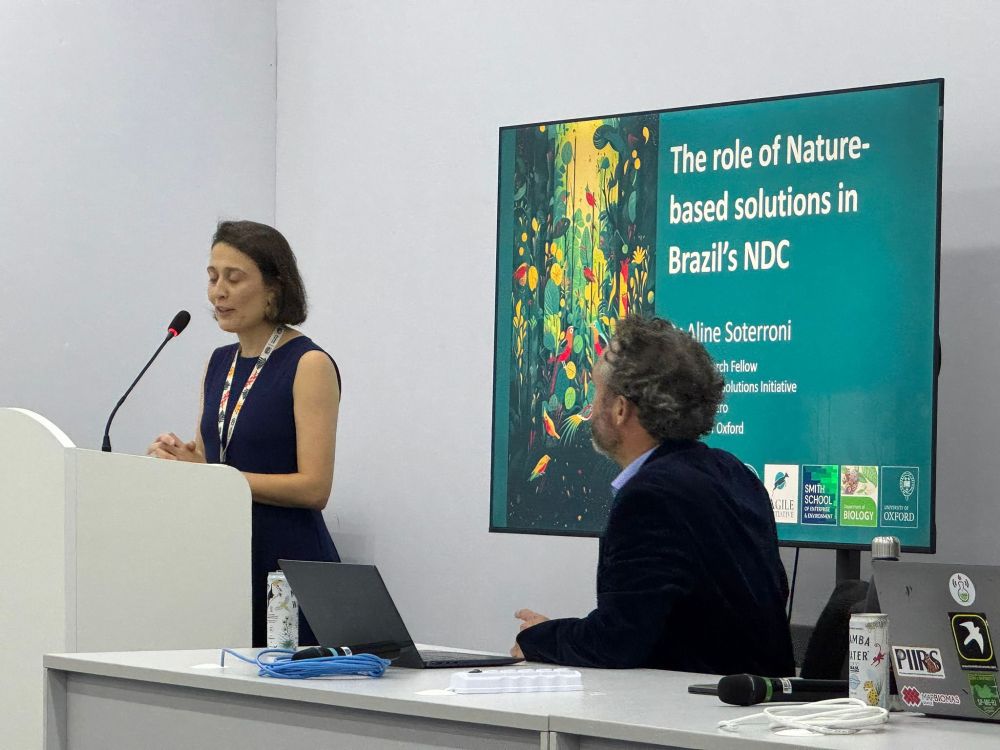
Assoc. Prof. in Conservation Science @biology.ox.ac.uk
Advocate for Equity, Diversity & Inclusion.
2020 National Geographic Explorer.
🦇🏝️🦎🐈⬛ // @iccs.bsky.social
https://iccs.org.uk/author/ricardo-rocha/

Reposted by Ricardo Rocha


Reposted by Glenn H. Shepard

@biology.ox.ac.uk @jesusoxford.bsky.social
news.mongabay.com/short-articl...
Reposted by Ricardo Rocha

Reposted by Ricardo Rocha

The IUCN Pangolin Specialist Group is working on a global action plan to conserve the species, with subgroups working on regional plans.
Reposted by Ricardo Rocha

doi.org/10.1111/csp2.70181
#ConservationScience

Q&A with Stéphane Blanc, research director at CNRS, about the Long-term Studies in Ecology and Evolution programme and its priorities for supporting long-term monitoring and research
Free to read: rdcu.be/eQltU
Reposted by Ricardo Rocha
See an (adorable) bat covered in pollen and learn why a world without bats would be a world without tequila in this week’s Surprising Science. 🦇
Reposted by Ricardo Rocha

www.bats.org.uk/news/2025/10...
Reposted by Ricardo Rocha
Reposted by Juan Cole, Bessma Momani, Ricardo Rocha , and 1 more Juan Cole, Bessma Momani, Ricardo Rocha, Alan McNally

I told him: “just write the paper, get it out—the next one will be better, and the next even better.”
Perfectionism is a trap (and a way to procrastinate...:))


phys.org/news/2025-11...
A new study from Switzerland showed at activity at beaver‐dammed stream sections was 2.3 times higher than at comparable stream sections without beaver influence.


Reposted by Ricardo Rocha




Reps from Oxford Biology joined experts from government, academia and NGOs at COP30 at this side event.
With Greenpeace, SOS Atlantic Forest foundation, WWF and @oxfordgeography.bsky.social.
📸 L.Jardim & A.Vasconcelos
Reposted by Ricardo Rocha

Testing a bat fatality detection system at wind turbines
journals.plos.org/plosone/arti...


@cienciasulisboa.bsky.social #SPECO

E muitos correm risco antes mesmo de serem estudados.
Sem investigação podemos perder espécies únicas para sempre.
👉 wilder.pt/historias/repteis-das-ilhas-correm-mais-risco-de-extincao-mesmo-antes-de-serem-estudados
Reposted by Ricardo Rocha

Read more ⬇️
Reposted by Julie L. Lockwood, Ricardo Rocha

doi.org/10.1111/csp2...
Reposted by Ricardo Rocha

New research from @ricardonature.bsky.social shows that 30% of island reptiles are threatened with extinction (compared to 12.1% of reptiles overall) - but only 6.7% of reptile-focused research since 1960 has studied them 👇
bit.ly/3LqQo1F
Reposted by Travis Longcore

Reposted by Ricardo Rocha

See the first PhD chapter of Lovasoa Rakotozafy, just out in @jappliedecology.bsky.social!
doi.org/10.1111/1365...
Reposted by Ricardo Rocha

🦇🖤🦇
www.bbc.co.uk/future/artic...


Reposted by Ricardo Rocha

Reposted by Ricardo Rocha

Brazil’s Ambassador to the UK, Antonio Patriota, opened the event, Forests and the Future: Brazil’s Path to Climate Solutions
bit.ly/3JbgqW5
Reposted by Ricardo Rocha

Can this be achieved without worsening the biodiversity and nature crises?
Dame E.J. Milner-Gulland, Professor of Biodiversity @biology.ox.ac.uk explains ⬇️
www.ox.ac.uk/news/2025-10...

